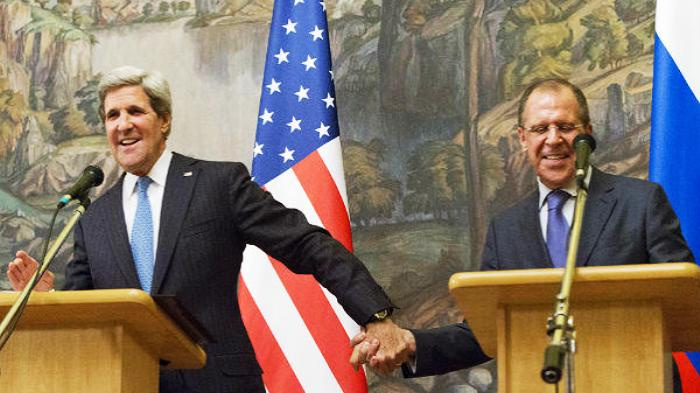US’s Janus-Faced Approach Toward Syria

US is a major stakeholder in the Syrian conflict and, so far, has displayed a seemingly contradictory Janus-faced approach that cancels out with one hand what the other hand offers in peace-making. The promise of peace in war-torn Syria has been time and again frustrated, most recently by a short-lived peace agreement that was gutted before the ink on the agreement had dried -- by what appears to be a deliberate US bombing of Syrian army positions that killed dozens of soldiers and thus strengthened the ISIS (Daesh), which went on the offensive immediately after the September 17th "errand" US bombing in Deir al-Zour.
While the debate rages on whether or not the US made a mistake or was it designed by a US military unhappy with the cease-fire agreement, one thing is clear and that is the lack of a genuine interest on US's part to pursue a lasting peace in Syria dominated by the government of Bashar al-Assad. The top US diplomats may be genuinely interested in a diplomatic solution, but they do not call the shots on the security dimensions, which is why one should not put too much faith in US Secretary of State John Kerry's efforts and statements. It is highly doubtful that the present US administration can deliver a sustainable peace and, consequently, the resolution of the deadly Syrian quagmire may need to await after the November elections in US.
For now, however, Washington's Syrian policy is inherently wedded to weakening Damascus's hold on the country, which is why through its German and other surrogates, the US is pressing forward the idea of a no-fly zone in parts of Syria, ostensibly for primarily humanitarian grounds, although it is most likely intended as a rebel sanctuary that can then be used to make military gains on the government strongholds. Of course, this would raise the risks of US-Syrian and even US-Russian confrontation, but this does not appear to be deterring the US policy-makers mapping out the next course of action on Syria. The Russian and Iranian support for Damascus may render the "regime change" scenario rather problematic, but this does not preclude "Syria change" policies that eye its territorial sovereignty and integrity. This is, after all, a war of opportunity for the US to expand its encroachments inside Syria and to raise the sunk costs for both Iran and Russia. Clearly, humanitarian concerns rank at the bottom of US's Syrian priorities and those concerns often hide ulterior motives touching on the military equation and balance of forces in Syria. In essence, this means that just like the past four years or so, the US will continue to do precious little to put out the fire and, indeed, quite a lot in adding fuel to the incendiary fire of the Syrian conflict by aiding the armed opposition, some of whom are bona fide extremist and terrorist groups. In fact, the Russian criticism that the US fails to screen the extremists from the moderate opposition seems rather apt but to a limit: the US is fully aware of the rebel groups' orientations and their less desirable record, yet keeps supporting them with the clear intention of denying Moscow a winning hand and, in effect, contribute to a Russian quagmire in Syria. Needless to say, there are a lot of vested interests, such as Turkey's, in Syria that the US must take into consideration, which is why the no-fly zone might be a ploy to create a regional 'coalition of the willing' to bring it about, sure to antagonize Damascus.
The prospect for a real peace in Syria looks at the moment rather dim and nothing has materialized from the US side that would indicate a more coherent and peace-promoting US policy on the horizon. It is therefore incumbent on the Syrian government and its international supporters to correctly assess the intentions of the US which has for several years followed the prescriptions of a dualist or bifurcated approach that is ultimately based on a built-in contradiction, i.e., it is desirous of war more than peace.

